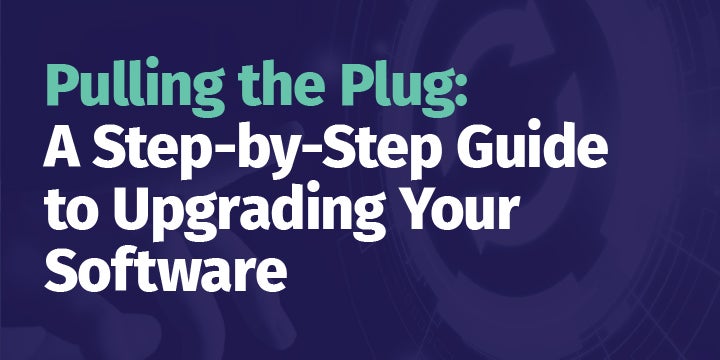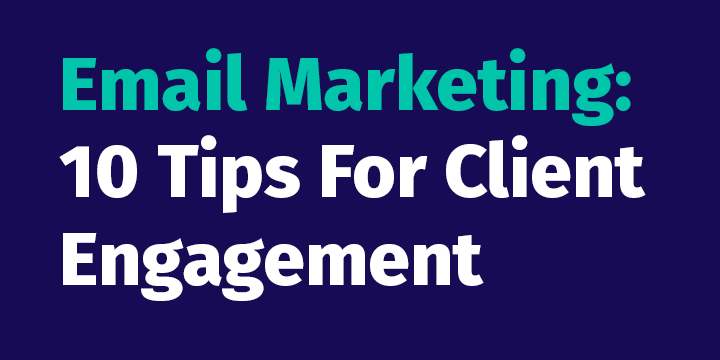Website Health

Evaluate And Optimize Your Website
Learn how an SEO audit will help you effectively communicate your brand, knowledge, and services.
As a business owner or manager, you’ve likely invested a great deal of resources – both time and money – into developing your online presence.
Building a website and adding content is a labor of love, but it’s too easy to expend a great deal of energy developing a brand, creating a site, and generating content only to let it sit in the Internet junkyard
Think of an SEO audit as a check-up and report card for your website.
SEO audits are an integral part of website maintenance. You can have an aesthetically pleasing website that’s filled with eloquent content, and that’s a beautiful thing, but for that site to be useful to your business, people need to find it. When they search for content or services you provide, you want your page to rank well on the search engine result page (SERP). If it doesn’t, it’s like a good book lost in time and space – unable to be accessed, read, and shared.
Performing an SEO audit is no easy feat. It’s equivalent to editing and evaluating a long manuscript. There’s no limit to what you can change or add to improve your site. Therefore, it’s important to have some concrete SEO goals surrounding the technical needs, organization, content, and performance of your site. Think of an SEO audit as a check-up and report card for your website. Your auditor needs to look at the functionality of each part and how they work together to determine its overall health. From there, an auditor will make recommendations regarding how to improve parts of the system to benefit the website’s SEO presence as a whole.
Step One: Technical SEO Analysis
So, where to begin? An SEO audit always starts by looking at the technical aspects of search engine optimization. These technical parts are like the heart of your site. Without proper circulation, the other organs won’t work properly. If the basic needs of your site aren’t accessible or indexable by search engines, it isn’t working correctly, and users won’t be able to interact with it at all. This results in a site of unfulfilled potential.
Analyzing the search accessibility of your website focuses on the user’s overall experience to ensure the site is findable and usable. If users can’t find and navigate your website, they won’t be able to engage with the content. When SEO auditors analyze accessibility, they will collect data on the following issues that influence how well users can access your information.
Circulation: An SEO audit will look for issues that prohibit proper circulation of your materials such as robots.txt, sitemap files and meta tags to ensure that users can navigate all areas of your content.
Site Architecture: An SEO audit will review the website architecture to make sure users can easily navigate your site. The fewer clicks, the better. Users should be able to find a simple route from your home page to the desired destination page. Furthermore, links need to be working properly. Do links lead directly to the content or are users left struggling to find their destination?
Website Page Speed: Users need to be able to browse your content freely and access your reliable information and services quickly. This means that content needs to be expeditiously uploaded across all devices. You want users to be able to easily navigate your site on a phone, tablet, or computer.
Once you know your audience can engage with your information, you want to look at indexability to see how well it’s organized according to search engine algorithms. Ideally, you want Google to recognize and index all the available pages on your website so that users can find them. The tough part is, Google constantly updates these algorithms in attempts to improve delivery of high-quality content to users. Therefore, you must stay informed about these SEO updates and revise your site as needed. Fortunately, an accessibility check already investigates a lot of aspects of indexability as pages that are poorly structured are penalized on Google and other search engines.
Step Two: SEO Content Analysis
Now that you’ve checked how well search engines distribute your content to users and how effectively users can interact with your website, the next step of your SEO audit is to focus on whether your site is valuable, desirable, and credible. An effective SEO content analysis will look at global and localized content issues.
Global content issues are general problems that repeat themselves throughout the site. They have to do with the organization and structure of your content. For your SEO audit, global issues will address the following:
Conflicting Topics: All the content in your site should stick to your main topic and area of expertise. It may be tempting to stuff your site with content thinking that more is better, but this is not the case. It’s important that all your content is relevant and sticks to your main idea.
Duplicate Content: Again, this is a problem of quantity over quality. You want your site to be interactive for your users and give them the information they need. You don’t want your site to be redundant. An SEO audit will look for duplicate content and duplicate topics that will negatively impact your search engine rankings.
Overuse Of Keywords: Keyword stuffing is an SEO trend of the past. Now, search engines value readability and will only acknowledge strong pages making the overuse of keywords useless. An SEO audit will ensure that keywords are used to your advantage.
After looking at repeated offenders regarding topics and keywords, it’s important to analyze the content on each page. An analysis of local search content issues focuses on the credibility and functionality of individual pages and looks for the following:
Quality Content: We cannot stress the importance of well structured, expertly composed content enough. This includes writing, images, and videos. All content on your site needs to be relevant and thoughtfully composed. If your content is weak, it will undoubtedly impact your rankings.
URLs With Your Main Keyword: All your URLs should be short, sweet, and to the point.
Strong Articles: Each article or blog on your page should be substantial, well written, and exceed 500 words. Not only do articles need to stick to the topic, but they need to have a strong heading, logical organization, and correct grammar.
Meta-Descriptions: All images and graphics need to contain short, accurate, and succinct meta descriptions.
Relevant Links: Content needs to contain relevant links that allow you to gain credibility with your audience by enabling them to research your topic and validate your information. This will contribute to your positive reputation as a trusted, reliable expert in your field.
Step Three: Audience Appeal
After a review of content to ensure that it’s reliable, readable, and relevant, it’s important to test how well browsers receive your site. Audience appeal is imperative to ranking well on the SERP. As a business owner, your reputation is everything, and to build a positive reputation, you need to appeal to your desired audience. An SEO audit will determine how trustworthy and popular you are by evaluating how often users frequent your site and how long they browse through your resources. In the long run, users will consistently view good websites.
Step Four: Understanding Your Competition
Ideally, at this point you are confident that your website is accessible to your audience, thoughtfully composed, and interesting to your readers. Your audit wouldn’t be complete without looking at the competition. From an SEO perspective, sizing up your competitors means researching and analyzing keywords.
An SEO audit should investigate what keywords your competitors are using and how frequently they’re using them. Then, you need to develop a strategy that will compete. Essentially, you should aim to target keywords that are used and searched regularly but not too often.
Coming up with a strategy for keyword use requires some finesse, and SEO strategists need to find a balance between the difficulty of keywords and frequency of traffic to lead to an increase in rankings on the SERP. There are infinite options when it comes to developing a sound plan for keyword use, and in the end, it should lead to more views and higher rankings.
FieldRoutes Offers Thorough, Professional SEO Audits
Evaluating your site for search engine optimization strengths and weaknesses takes effort and expertise. Understanding the technical and creative shortcomings of your website as well as adapting to changing search engine algorithms is critical as you aim to improve your rankings.
Fortunately, the SEO experts at FieldRoutes will evaluate and optimize your website through a comprehensive audit. We carefully review the technology behind your site, the content within your site, and how your site competes on the SERP. Then, we make recommendations based on our findings.
Highlights Included In Our SEO Audit:
Website Content: We will look at the quality of your information, specifically focusing on organization, duplicate content, and overuse of keywords. We will provide recommendations to improve accessibility and search indexability.
Responsive Website Design: We will make sure that your content is scalable and accessible across all devices including computers, tablets and mobile.
Page Titles And Meta Descriptions: We will inspect your page titles and meta descriptions to ensure that they’re the ideal length and that they include relevant keywords. Then, we will make corrections as needed.
Keywords: Our SEO keyword analytics includes identification of already ranked keywords on your site and the search volume associated with each keyword. We will then make recommendations and provide a list of essential keywords aimed to improve your results.
Site Links: We’ll look at your internal linking structure to ensure that users can easily interact with your website. We will review the value of your links and identify broken links.
Backlinks: We will determine the sites that are linking to your website and evaluate the quality of those sites. Ideally, you want quality, reputable sites to recommend users to you and your services. If you have backlinks from lower quality sites, we will develop strategies to remove those links.
Image Tags: We will review the ALT text and title on your images to make sure they exist and are relevant.
Analytics: We will look at your website traffic over time to see whether its increasing or not. We will also determine if your traffic is organic or comes from paid advertisements or referrals. Then, we will make recommendations to help you increase your organic traffic.
In the end, your field service company wants to be the best in representing the industry, products, and services. Our team of SEO professionals will help you improve your site so that you can effectively communicate your brand, knowledge, and services to your audience.
Once we audit your site, we will develop a comprehensive report that includes recommendations to improve your search engine rankings based on SEO best practices. We will even implement those changes for you.
Reach out to FieldRoutes today; we welcome the opportunity to discuss your marketing needs.
Work Cited
2020. “The Definitive Guide to Running an SEO Website Audit”. NEILPATEL. Retrieved June 17, 2020 from https://neilpatel.com/blog/seo-website-audit/.
Frederick, Brian. (2022). “10 Steps To Boost Your Site’s Crawlability And Indexability”. https://www.searchenginejournal.com/crawling-indexability-improve-presence-google-5- steps/167266/#search
Stoyanov, Nikolay. 2016, September 12). “SEO audit: a complete guide to the basics”. Search Engine Watch. Retrieved June 16, 2018 from https://www.searchenginewatch.com/2016/09/12/seo-audita-complete-guide-to-the-basics/.





